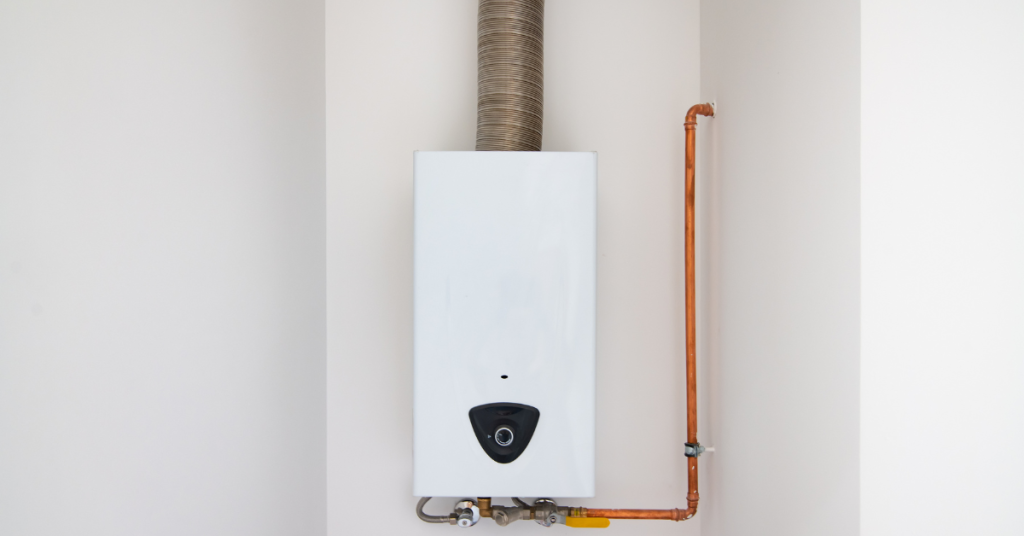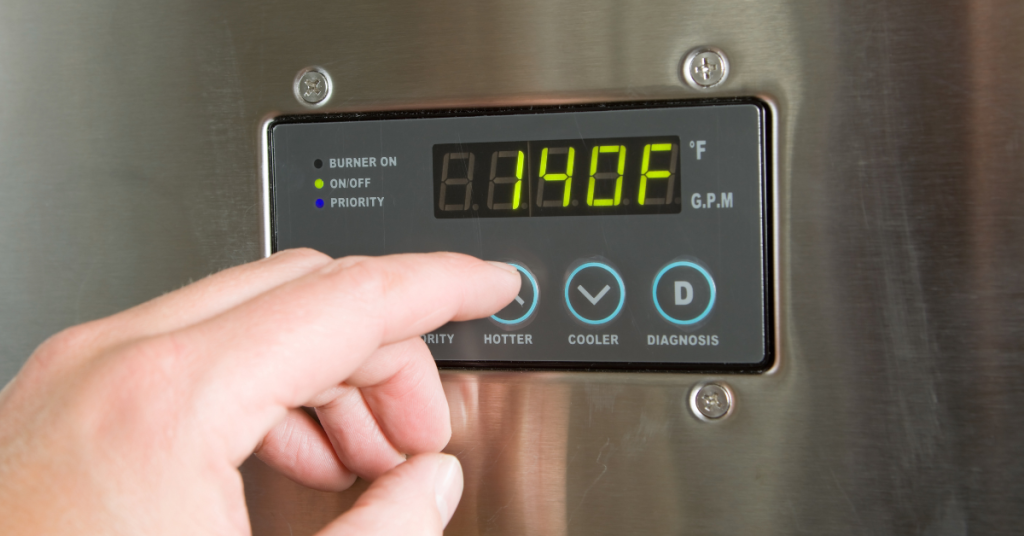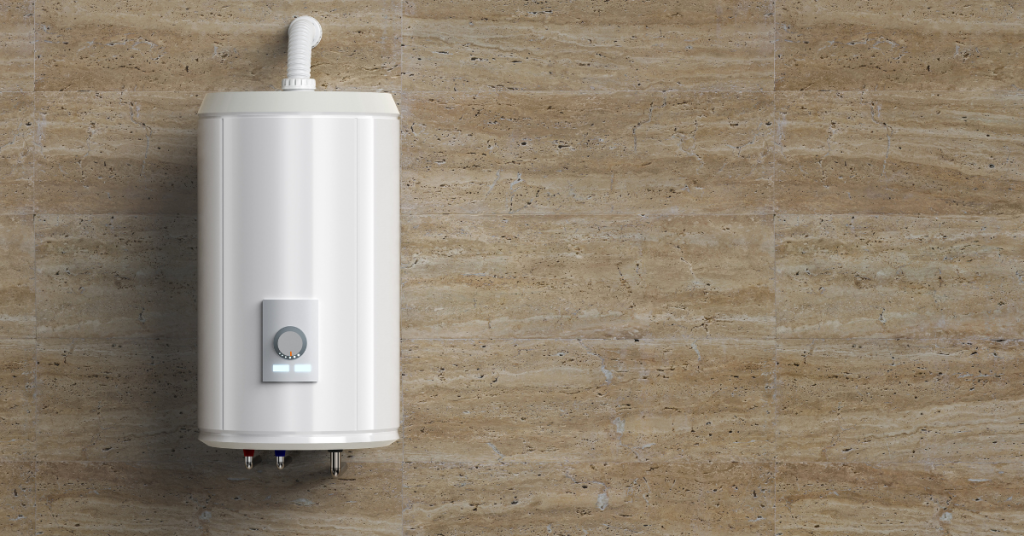Embarking on the exploration of water heating options unveils a realm where tradition clashes with innovation. Traditional tank water heaters, stalwarts of reliability, face off against their modern counterparts – the tankless wonders. In this comprehensive guide, we navigate through the intricate landscape of water heating systems, delving into the profound distinctions, advantages, disadvantages, and critical considerations that surround tankless water heaters.

Distinguishing Features
Understanding the fundamental differences is crucial. Traditional tank water heaters diligently maintain a reservoir of hot water, tirelessly replenishing and reheating, while tankless counterparts embrace on-demand heating, promising energy efficiency and a perpetually warm water supply. Let’s delineate these key distinctions.
| Feature | Tank Water Heater | Tankless Water Heater |
|---|---|---|
| Heating Mechanism | Constantly heats stored water | Heats water on demand |
| Size and Space | Larger, requires more space | Compact, can be wall-mounted |
| Energy Efficiency | Lower efficiency | Higher efficiency |
| Hot Water Supply | Limited, can run out | Unlimited, continuous supply |
| Installation Costs | Lower initial cost | Higher initial cost |
| Operating Costs | Potentially higher | Generally lower |
Pros and Cons of Tankless Water Heaters
Let us now look at the advantages and disadvantages of tankless water heaters so that you can decide if they are the water heaters for you.
Advantages of Tankless Water Heaters
The following are the main pros of installing a tankless water heater:
1. Endless Hot Water Supply
One of the undeniable merits of tankless water heaters lies in their ability to provide an uninterrupted stream of hot water. Unlike traditional tank heaters, which store and preheat a finite amount of water, tankless systems operate on demand. When a hot water tap is opened, the tankless unit swiftly activates its heating elements, ensuring a continuous flow of hot water. This is particularly advantageous for households with varying hot water needs or those with multiple simultaneous users.
The elimination of the concern of running out of hot water during a prolonged shower or when running multiple appliances simultaneously is a significant lifestyle enhancement. However, it’s crucial to acknowledge that the immediate availability of hot water doesn’t equate to instantaneous delivery. There might be a brief delay as the system initiates the heating process, especially if the hot water outlet is distant from the heating unit.
2. Energy Efficiency

Energy-conscious homeowners find a compelling ally in tankless water heaters due to their enhanced energy efficiency. Unlike traditional tanks that maintain a reservoir of hot water, tankless systems don’t suffer from standby heat loss. Standby heat loss occurs when the stored water in a tank gradually loses heat, requiring the heating element to intermittently reheat the water to maintain the desired temperature.
The tankless design, by contrast, heats water only when needed. This on-demand heating approach translates to lower energy consumption and subsequently reduced utility bills. The environmental impact is also commendable, as less energy usage contributes to a smaller carbon footprint. For those with a commitment to sustainable living, the energy efficiency of tankless water heaters aligns seamlessly with their eco-conscious values. The compact, wall-mountable design of tankless heaters also contributes to space savings, providing flexibility in installation locations within a home.
Challenges Associated with Tankless Water Heaters
The following are the cons of a tankless water heater:
1. Higher Initial Cost
While the long-term operational cost benefits of tankless water heaters are evident, the upfront investment required for their installation can be significantly higher than that of traditional tank heaters. The cost includes not only the unit itself but also potential modifications to existing gas lines or electrical systems, which may be necessary for installation.
Homeowners considering the switch to tankless need to weigh the immediate financial commitment against the expected savings over the lifespan of the system. The decision to embrace a tankless water heater often involves a balance between short-term financial considerations and the potential long-term benefits, making it essential for homeowners to evaluate their budget constraints and future financial goals.
2. Installation Complexity
Installing a tankless water heater can be more complex than swapping out a traditional tank unit. The need for adjustments to gas lines, electrical systems, or venting requirements adds an extra layer of intricacy to the installation process. Professional installation is typically recommended to ensure compliance with local building codes and to optimize the performance of the tankless system.
The complexity of installation contributes to the higher initial cost but is often outweighed by the long-term benefits in energy efficiency and operational savings. Homeowners embarking on the tankless journey should factor in both the upfront investment and the potential long-term returns when evaluating the overall cost-effectiveness.
3. Output Limitations
While tankless water heaters boast an uninterrupted supply of hot water, there are limitations to their simultaneous output. During periods of intense demand, such as when multiple hot water appliances are in use simultaneously, the tankless system may struggle to maintain the desired water temperature.
This can result in fluctuations in water temperature, a phenomenon known as the “cold water sandwich.” Homeowners need to be aware of these limitations and consider their specific hot water usage patterns when deciding on the suitability of a tankless water heater for their homes. Understanding the intricacies of a tankless system, including its limitations, empowers homeowners to make informed decisions based on their individual needs and priorities. While the output limitations are a consideration, they are often outweighed by the benefits of continuous hot water and energy efficiency.
Choosing the Tankless Path: When and Why?

- Long-Term Homestead: If you envision a lasting residency in your current abode, the sustained savings offered by tankless water heaters make them a sensible investment over time.
- Spatial Constraints: Homes grappling with space restrictions find solace in the compact design of tankless water heaters, enabling efficient use of limited square footage.
- Energy Efficiency Advocates: Individuals championing energy efficiency and sustainability will find kindred spirits in tankless water heaters, aligning with their eco-conscious values.
Cost Breakdown of Tankless Water Heaters:
- Installation Investments: The complexity of tankless water heater installations contributes to higher upfront costs, a factor to be reckoned with when evaluating the overall cost-effectiveness. On average, it costs between $1000 and $3500 to install a tankless water heater. On the other hand, installing a tank water heater costs between $800 and $1300.
- Operational Economies: Although operational costs typically skew lower, the initial investment demands a comprehensive assessment to gauge the holistic financial impact.
Beyond the surface-level distinctions and evident pros and cons, there’s a need to delve deeper into the nuances surrounding tankless water heaters. Let’s explore the complexities, dispel myths, and offer practical insights into the realm of endless hot water.
Myth-Busting: Dispelling Common Misconceptions:
- Instant Hot Water Fallacy: Contrary to popular belief, tankless water heaters don’t deliver hot water instantaneously. There’s still a brief delay as the system initiates the heating process.
- Maintenance Matters: Regular maintenance is key to maximizing the lifespan and efficiency of a tankless water heater. Neglecting this aspect may lead to performance issues and increased operational costs.
Unveiling the Mysteries of Tankless Water Heater Costs:
- The Initial Outlay: The higher upfront investment often dissuades potential adopters, but understanding the long-term savings and benefits paints a more comprehensive financial picture.
- Operational Expenditures: Energy efficiency and reduced utility bills are the silver linings in the operational cloud. Over time, the cost advantages become more evident, validating the initial capital injection.
Conclusion: A Thoughtful Decision Awaits
In the grand debate between traditional tank water heaters and their tankless counterparts, the decision-making process is highly nuanced. It hinges on individual needs, priorities, and the vision for long-term homeownership. While tankless water heaters offer alluring benefits such as an uninterrupted hot water supply and enhanced energy efficiency, the higher upfront costs may pose a formidable barrier. The journey towards selecting the ideal water heating solution necessitates a meticulous examination of factors like available space, energy efficiency goals, and the willingness to invest in a sustainable future. The ultimate choice, whether tank or tankless, is a testament to aligning with a lifestyle that resonates with both practicality and preference.
